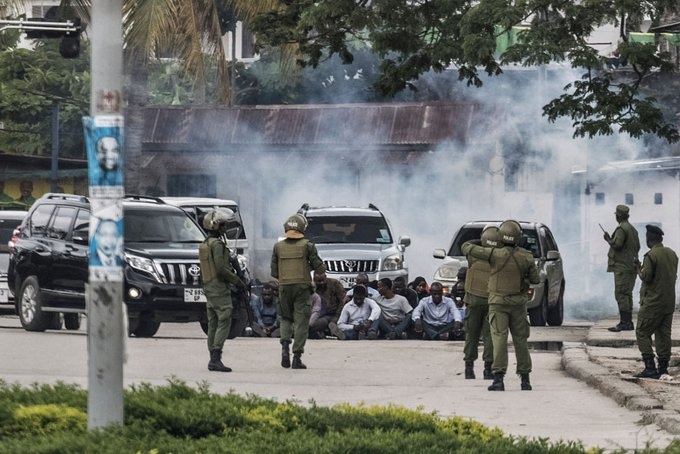
 Accident scene
Accident scene United Nations statistics show that road traffic crashes cause nearly 1.3 million preventable deaths and an estimated 50 million injuries globally each year.
This makes road accidents the leading cause of death among children and young people worldwide.
Additionally, road crashes are projected to cause a further 13 million deaths and 500 million injuries over the next decade, significantly hindering sustainable development, particularly in low- and middle-income countries.
Despite extensive efforts by the United Nations and other road safety organizations, these numbers—both in absolute and relative terms—have remained largely unchanged for the past 20 years.
Decade of Action for Road Safety 2021–2030
Recognizing the urgency of the issue, governments worldwide unanimously adopted UN General Assembly Resolution 74/299, launching the Second Decade of Action for Road Safety (2021–2030).
The campaign aims to reduce road deaths and injuries by at least 50% during this period.
This plan outlines the necessary actions to achieve that target.
It is designed for senior policymakers and serves as a blueprint for
developing national and local road safety strategies.
Governments and global stakeholders face a choice: continue with "business as usual" and hope for meaningful reductions in fatalities, or act boldly and decisively by leveraging the knowledge gained from the previous Decade of Action.
The Global Plan for the Decade of Action for Road Safety 2021–2030 firmly rejects the status quo, urging governments and stakeholders to adopt a new, proactive approach.
This approach prioritizes the Safe System framework, which integrates road safety into sustainable development initiatives.
It also emphasizes the need for concrete actions to meet the target of halving global road traffic deaths and serious injuries by 2030.
Fourth Global Ministerial Conference
This week, leaders, ministers, and officials from over 100 countries will gather to strengthen global commitments to road safety at the Fourth Global Ministerial Conference on Road Safety.
The summit, hosted by the Kingdom of Morocco and the World Health Organization (WHO), will take place in Marrakech from February 18–20, 2025.
Around 2,500 delegates will attend, including ministers, heads of national road safety agencies, government representatives, parliamentarians, and experts from the United Nations, civil society, business, and academia.
Key focus areas of the conference include road safety governance, emerging trends in mobility, and financing and collaboration with the private sector.
Road traffic injury data
Connections between road safety and other agendas, including health, transport, environment, and sustainable development
As the first-ever Global Ministerial Conference on Road Safety held in Africa, there will be a particular emphasis on addressing road safety challenges across the continent.
At the conference, global leaders will endorse the Marrakech Declaration on Global Road Safety, urging countries to make road safety a political priority and accelerate actions to achieve the goal of halving global road deaths by 2030.
This is as outlined in the Decade of Action for Road Safety
2021–2030 and the United Nations Sustainable Development Goals.
Why the Protocol?
Each year, road crashes claim nearly 1.3 million lives—equivalent to more than two deaths per minute—and cost most countries 3–5% of their gross domestic product (GDP).
Additionally, the transport sector contributes approximately 25% of the world's greenhouse gas emissions.
The protocol aims to inspire national and local governments, as well as other key stakeholders—including civil society, academia, the private sector, donors, and community and youth leaders—to take decisive action to improve road safety.
Implementing the Safe System approach is critical to achieving significant progress over the next decade. Actions must be evidence-based, and where possible, implementation research should guide the adaptation of proven measures to local contexts.
The UN’s road safety legal instruments provide a strong foundation for countries to develop national frameworks that enhance road safety while facilitating international road traffic.
Speed Management
Effective speed management is a crucial element of the Safe System approach. Speed is a cross-cutting risk factor that affects multiple aspects of road safety, including multimodal transport and land use planning.
Others are infrastructure design and vehicle safety standards.
Managing speed not only reduces the likelihood and severity of crashes but also enhances the effectiveness of other safety interventions.
For example, vehicles meeting UN safety regulations are
designed to protect occupants and pedestrians in side-impact collisions at
speeds up to 50 km/h. Therefore, a Safe System approach would ensure speed
limits of 50 km/h or lower on roads with intersections where side impacts are
likely.
Financing
Road safety remains underfunded in many countries. Long-term, sustainable investment is necessary for developing safe road infrastructure and implementing effective safety interventions.
There are significant opportunities to integrate road safety funding into broader transport investments, including transport and network planning, public transport development, road construction and maintenance and traffic management operations
The Marrakech Declaration calls for a step-change in global road safety efforts, urging governments to implement all recommendations outlined in the Global Plan for the Decade of Action for Road Safety 2021–2030.
It also calls on governments to strengthen laws, safety regulations, and intergovernmental coordination.
The declaration provides for increased cross-border knowledge-sharing, technical support, technology transfer, expanded research into emerging technologies, promote walking, cycling, and accessible public transport.
Road Safety Progress: Key Figures
According to the latest WHO Global Status Report on Road Safety (2023), global road traffic fatalities declined slightly to 1.19 million per year in 2021, representing a 5% reduction since 2010.
More than half of all UN Member States reported a decrease in road deaths during this period.
Notably, 10 countries successfully halved fatalities over the past decade, proving that a 50% reduction is achievable.
Additionally, 35 countries reduced road deaths by 30–50% between 2010 and 2021.
The Role of the World
Health Organization
WHO is hosting and participating in multiple events at the conference, including:
A meeting of the Global Network of Heads of National Road Safety Agencies (in partnership with the World Bank).
Sessions on road safety governance, data collection, legislation, enforcement, and strategic communication
The Global Plan for the Decade of Action for Road Safety 2021–2030 was developed by WHO and the United Nations Regional Commissions, in collaboration with partners from the United Nations Road Safety Collaboration and other stakeholders.
This Global Plan serves as a guiding framework to support countries in achieving the Decade of Action’s ambitious targets.
UN General Assembly Resolution 74/299 reaffirmed the global commitment to reducing road traffic deaths and injuries by 50% by 2030.
By implementing evidence-based strategies and prioritizing
road safety at all levels, governments and stakeholders can save millions of
lives and create a safer, more sustainable future for all.












